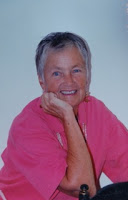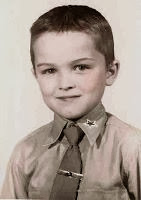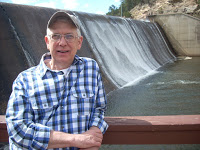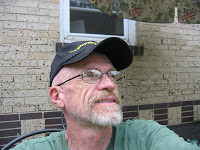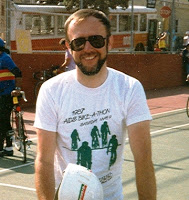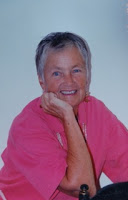The following is an imaginary voice from the Universe heard inside a woman’s uterus by a viable life preparing for its day of birth.
“Now is the time for you to make your choice. You may choose from these two options: gay or straight. In other terms—homosexual or heterosexual. Before you decide let me explain the consequences of your choice.
“If you select the gay option you will have many obstacles in your life that you otherwise would not have. You will be considered abnormal by many people from the start, you could very easily find yourself being discriminated against by employers, landlords, merchants, and service providers. The law may possibly not offer any recourse for you if and when you are discovered depending on how the movement goes and the state of civil rights. You could actually be put in jail if you are found out.
“You may feel constrained to stay in the closet for a long, long time, maybe forever. That means denying your truth to yourself and to others. This could have a serious impact on your emotional and mental health—possibly on your physical health as well.
“If you try to express your sexuality and live as the person you are; i.e. live as an openly gay person, you risk your safety, security, and well being. You will keep your self esteem and self respect however. But there may be a price to pay for that.
“If you select the straight option life should be easier for you. You will derive benefits from marrying a person of the opposite sex. As a woman you will be safe if you serve him well. You will be secure if you do his bidding. You will have no difficult choices to make because they will all be made for you and to your advantage if you stay in line. The only risk for you is that you might screw up because you don’t realize that you have all the advantages.
“As I said, it’s your choice.”
The above scenario is, of course, absurd. None of this would happen because this choice is not available to us. This choice is never given to any of us before birth. We are born LGBTQ or heterosexual or gender fluid or whatever else yet to be defined—whatever else exists on the sexuality spectrum.
The choice is made when we become aware, conscious, of ourselves—our feelings, what drives us, with whom we fall in love. We make the choices later in life when we understand that there IS a choice— and that choice, as we all know, is not who we ARE by birth, but whether or not we choose to LIVE as an expression of who we are.
Personally, I understand very well the consequences of denying who I am and living as someone I am not. Once I became aware of my sexual orientation I was able to make that choice, respect myself, and be happy and fulfilled.
Those who wish to change us LGBTQ’s, punish us, put us away, or whatever, seem to imagine that we all experience the above in-utero scenario and we should be punished or, at least, forced to change because we made the wrong choice. We made the choice in-utero and were born gay yes on our first birthday, because we chose to. REALLY! Or, if they do not accept that absurdity, they want to punish us for expressing our real selves—for living as gay people.
I choose to live in a world which accepts every newborn baby for exactly what it is—everything that it is. I choose to welcome every life into this world as perfect as I did one week ago my first great grand child.
You know, I’m convinced he’s gay because of the way he waved when he was born. Then when he started primping his bald head his mother and grandmother and Auntie Gill were convinced too. He’s lucky. He knows he is loved by us all—gay or straight.
© 14 November 2016
About the Author
Betsy has been active in the GLBT community including PFLAG, the Denver Women’s Chorus, OLOC (Old Lesbians Organizing for Change), and the GLBT Community Center. She has been retired from the human services field for 20 years. Since her retirement, her major activities have included tennis, camping, traveling, teaching skiing as a volunteer instructor with the National Sports Center for the Disabled, reading, writing, and learning. Betsy came out as a lesbian after 25 years of marriage. She has a close relationship with her three children and four grandchildren. Betsy says her greatest and most meaningful enjoyment comes from sharing her life with her partner of 30 years, Gillian Edwards.
